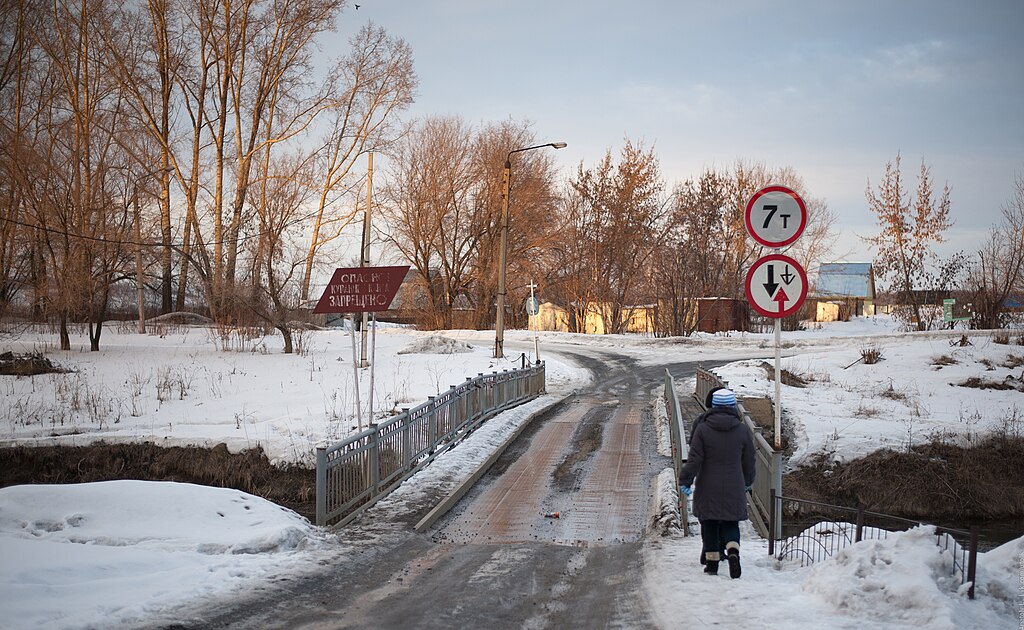Do the Chinese really want Siberia?
Clashes with Russia over northern territories is a constant in the history of the past centuries. But today there is no rush of Heilongjiang province residents to seek a home in Siberia at all. Rather, Beijing's advance is happening through the yuan, which is replacing the ruble in trade transactions. Natural resources the real issue at stake
Moscow (AsiaNews) - The contestation of the Asian territories of Siberia between Russia and China is an issue that has been dragging on for at least a couple of centuries, going from the “conquering” tsars to the spheres of influence of Soviet and Maoist communism, to the current expansion of Xi Jinping's China, at the expense of Putin's Russia totally engaged by the war in Ukraine. However, the Chinese “reconquest” of these lands is also highly emphasized, as Russian-Ukrainian analyst and blogger Aleksej Kušč argues.
The Chinese desire to move to Siberia, in the face of an obvious flow to the Russian Far East, would actually be “one of many myths about China.” The population of Heilongjiang Province-a name that means Black Dragon River being situated along the course of the Amur, the river that divides the two countries-has long been declining in population, and the people of this region dream of moving to southern China rather than the Siberian frost.
The interest in Siberia, Kušč comments, is more about its natural resources, from timber to extractive minerals, and more than mass migration here is about the currency, the Chinese yuan, which in trade is largely replacing the ruble, even for the Russians themselves. Thanks to Western sanctions against Moscow, China is strengthening its geopolitical and economic position vis-à-vis the Russians, and can afford to extend its influence not only over Siberia, but also over Central Asia and much of the former Soviet empire.
Another rather contrived argument concerns the relative scarcity of habitable land for China's huge population, while Siberian spaces are largely empty and available to those who want to live more comfortably. The truth is that China is also far from overcrowded, and the northern lands are equally sparsely inhabited due to issues of climate, which is certainly no better in Siberia. Rather, the analyst believes that China is “a world leader in rational and optimal land use.”
China's population is actually declining not only on its borders with Russia, but throughout the country, and the demographic issue is becoming increasingly worrisome, with a huge disproportion between births and deaths and the resulting average aging population. Regulations on birth control and birth restriction (the “one family-one child” principle) have been abolished for years now, and efforts are being made to stimulate the birth rate in every way, as is also intended to be done in Russia.
It is true that China depends largely on exports, but according to the analyst even here one should not exaggerate: the Chinese GDP consists of 20 trillion dollars, while the foreign trade balance remains around 6 trillion, affecting the entire economy by no more than 30 percent. Kušč recalls that in Ukraine, before the war, the export volume was about 55 percent, and “this is a real dependence.” If all foreign trade were to be blocked, China would suffer a serious blow to its economy, but “it would be able to survive,” and even the new U.S. President Donald Trump, who threatens to impose strong tariffs on all imports, speaks of “a moderate tariff policy” toward China.
After all, the blogger concludes, China's economy does not remain confined to the factor of overseas investment growth, but seeks to increase domestic consumption, including by changing some policies of past years. The middle class in China is measured at about 400 million people, and there is a billion active consumers to satisfy before thinking about looking for housing in Siberia.
Photo: Flickr / anatoly_l







.png)










